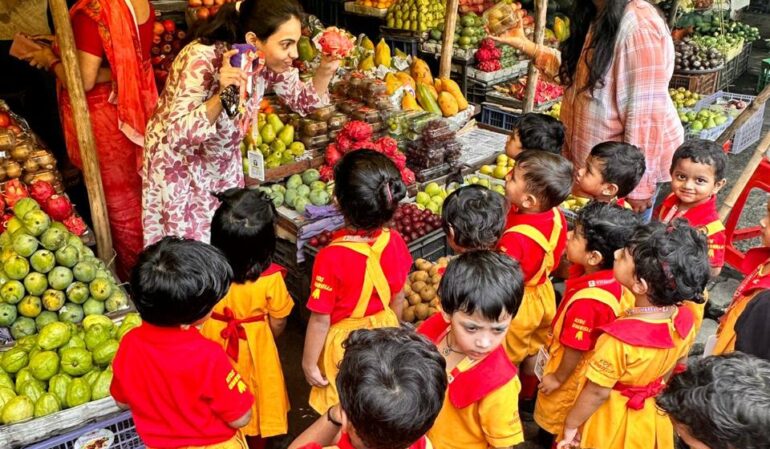
Early childhood is a crucial period in a child’s life, laying the foundation for future learning, behavior, and health. Among the various educational stages, kindergarten plays a pivotal role in shaping young minds. This blog explores the significance of kindergarten in early childhood development, highlighting its impact on social, emotional, cognitive, and physical growth.
Understanding Kindergarten
Kindergarten typically serves children aged 4 to 6 years, acting as a bridge between preschool and primary school. It is designed to provide a structured environment where children can learn essential skills through play, exploration, and guided activities. Unlike traditional schooling, kindergarten emphasizes a holistic approach, focusing on the overall development of the child rather than just academic achievement.
Key Roles of Kindergarten in Early Childhood Development
1. Social Development
One of the most significant roles of kindergarten is fostering social skills. In a kindergarten setting, children interact with peers, learn to share, take turns, and work collaboratively. These interactions help them develop important social competencies, such as empathy, communication, and conflict resolution.
- Group Activities: Engaging in group projects and playtime encourages teamwork and helps children understand the dynamics of relationships.
- Diverse Interactions: Exposure to children from different backgrounds promotes inclusivity and cultural awareness.
2. Emotional Development
Kindergarten provides a safe space for children to express their emotions and develop emotional intelligence. Teachers guide children in recognizing and managing their feelings, which is essential for building self-regulation and resilience.
- Self-Expression: Activities like storytelling and role-playing allow children to articulate their thoughts and feelings.
- Supportive Environment: A nurturing classroom atmosphere helps children feel secure, boosting their confidence and self-esteem.
- 3. Cognitive Development
- Cognitive skills are crucial for academic success, and kindergarten lays the groundwork for these skills through play-based and structured learning.
- Foundational Skills: Kindergarten introduces basic concepts in literacy, numeracy, and science, preparing children for future learning. For instance, children learn the alphabet, numbers, and simple problem-solving through engaging activities.
- Critical Thinking: Activities that encourage exploration and inquiry foster critical thinking and curiosity, essential traits for lifelong learning.
- 4. Physical Development
- Physical development is a vital aspect of early childhood, and kindergarten provides numerous opportunities for children to enhance their motor skills.
- Gross Motor Skills: Activities like running, jumping, and climbing promote physical fitness and coordination.
- Fine Motor Skills: Tasks such as drawing, cutting, and building with blocks help refine fine motor skills, which are essential for writing and other academic tasks.
- 5. Preparation for Future Education
- Kindergarten serves as a critical transition to formal education. It helps children adapt to the structure and expectations of a classroom environment, making the shift to primary school smoother.
- Routine and Structure: Children learn to follow schedules, listen to instructions, and complete tasks, which prepares them for the more rigorous demands of elementary school.
- Building Relationships: Establishing connections with teachers and peers in kindergarten lays the foundation for future educational experiences.
- Conclusion
- Kindergarten plays an indispensable role in early childhood development, providing a nurturing environment where children can grow socially, emotionally, cognitively, and physically. By emphasizing holistic development, kindergarten prepares children not only for academic success but also for life. As parents and educators, recognizing the importance of this foundational stage can help us support our children in becoming well-rounded individuals ready to embrace the challenges of the future. Investing in quality kindergarten education is an investment in a child’s lifelong journey of learning and growth.